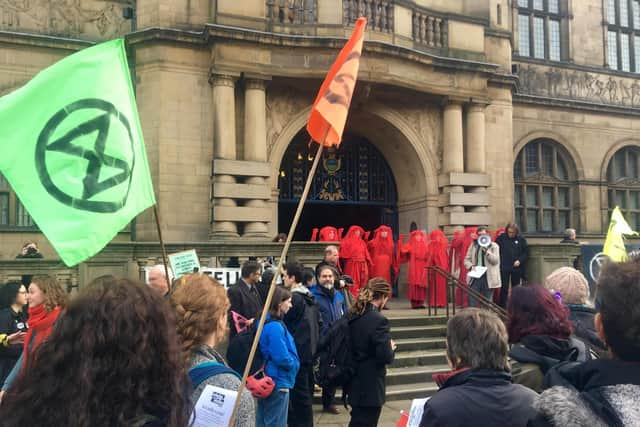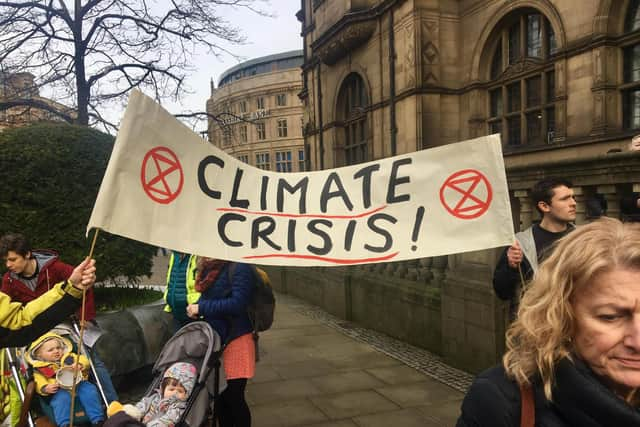Sheffield Climate Alliance welcomes ‘milestone’ in city’s zero carbon journey
and live on Freeview channel 276
Council leaders, experts and members of the public joined together for the fully booked event was the first in a series of conversations on tackling the climate crisis.
It came with the release of the Pathways to Zero report, produced by Arup and Ricardo over the past year, that acts as a route-map towards a zero carbon Sheffield and shows the challenges of reaching even an 85 percent reduction over the next nine years.
Advertisement
Hide AdAdvertisement
Hide AdJenny Carpenter, from Sheffield Climate Alliance, said: “The big challenge is to achieve people’s buy-in to the vision and imagination to achieve a greener, cleaner, healthier, fairer and happier city.”


Vanessa Senger, co-chair of Sheffield Climate Alliance, added: “The level of interest in attending [the Climate Summit] shows just how hungry the city is to start to make progress. It feels like the long wait since the zero carbon commitment in 2019 is finally over.”
The group said it will continue to hold the council accountable for achieving its zero carbon target and wrote to all councillors last week urging them to adopt a series of retrofitting measures.
It said considering housing accounts for a third of carbon emissions in Sheffield, the changes could “vastly improve the lives of many citizens” through job creation and improvement to living standards.
Advertisement
Hide AdAdvertisement
Hide AdAt the summit, Andy Sheppard, sustainability expert at Arup, said there was a 42 percent reduction in carbon energy use across Sheffield since 2005.


But he also presented data showing if the city continued with “business as usual” it would not get anywhere near carbon zero by 2030.
Further changes he said needed to happen included retrofitting every business and home, completely stopping use of fossil fuels, making all cars electric, switching more car trips to active travel like cycling and walking, increasing use of public transport, reductions in energy consumption, switching out gas boilers in 15,000 properties and a significant increase in home installations.
The cost of these amounts to billions of pounds but he said inaction would be significantly more expensive in the long-term.